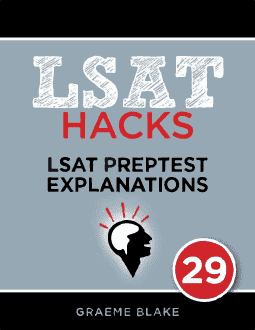QUESTION TEXT: The plant manager's argument is most vulnerable…
QUESTION TYPE: Flawed Reasoning
CONCLUSION: The new process will cost a lot but won’t bring any profits.
REASONING: The new equipment costs a lot to install and costs more to run.
ANALYSIS: We’re supposed to ignore the supervisor when we answer this as we’re only evaluating the plant manager’s argument.
This is tricky, but the manager is only talking about costs. Yet his conclusion is about profits. There could be something about the new process that increases profits. Maybe people will pay more for copper that is environmentally friendly and doesn’t produce as much sulfur dioxide (for example.)
___________
- CORRECT. The manager only considers cost and doesn’t prove that there are no monetary advantages to the new process.
- The plant manager says that the new equipment costs money to buy and costs more to run. It should be possible to check whether that information is true.
- This doesn’t happen, conclusion actually goes beyond the evidence by stating that there are no profits.
In any case, it’s not bad to repeat the evidence if you’re combining different pieces of evidence to form a single confusion (that’s different from circular reasoning.) - The manager doesn’t say anything is only “probably true.”
- What facts aren’t relevant? The manager says what the method requires and what it costs and then makes a conclusion based on that evidence.


would C be more correct had the part about profits not been there? Also what led me to A was the supervisor stating how it can potentially help them save on fuel. I saw as hey you for forgot to consider this
C will almost never be correct. It described circular reasoning, where you literally give no evidence. I.e. “My dog is good because it is a good dog”
It’s such an obviously flawed argument that LSAC rarely makes it. But they include it as a flaw in wrong answers. It’s important to recognize what it means and have an extremely high bar for choosing circular reasoning as an answer.
For A, I’d reread what I wrote in the analysis section. It really is just the difference between a net measure (profit) and a gross measure (cost)
Here’s a simpler and dumber version of the flaw the manager makes: I got this $20 bill. But to get it, I had to give up two $10 bills. That cost me a lot! So I’ve lost money.
The manager is only looking at costs (losing two $10 bills) and used that to make a conclusion about net gains (I’ve lost a lot!)
But to look at net gains (like profit) you need to consider both costs and benefits.
You could say they forgot to consider benefits. If that’s what you meant then that is correct. Hope that helps!
Hey Graeme,
I still don’t see why B is also a potential right answer. The cost savings that the plant manager are based on claims he made; he doesn’t cite any sources on where he got the information that the new process cost more to install/run.
It is definitely possible to check whether or not the claims that the manager made are true or not, but why can’t the effort of verifying the manager’s claims be construed as a weakness for this argument?
On the LSAT, “authority” means “I am the plant manager, so I am correct.”. The LSAT doesn’t have space to include citations, so when someone says something, assume it’s true.